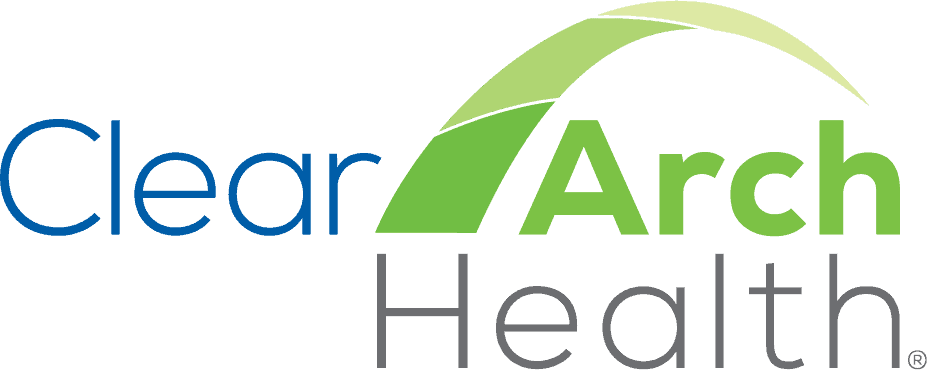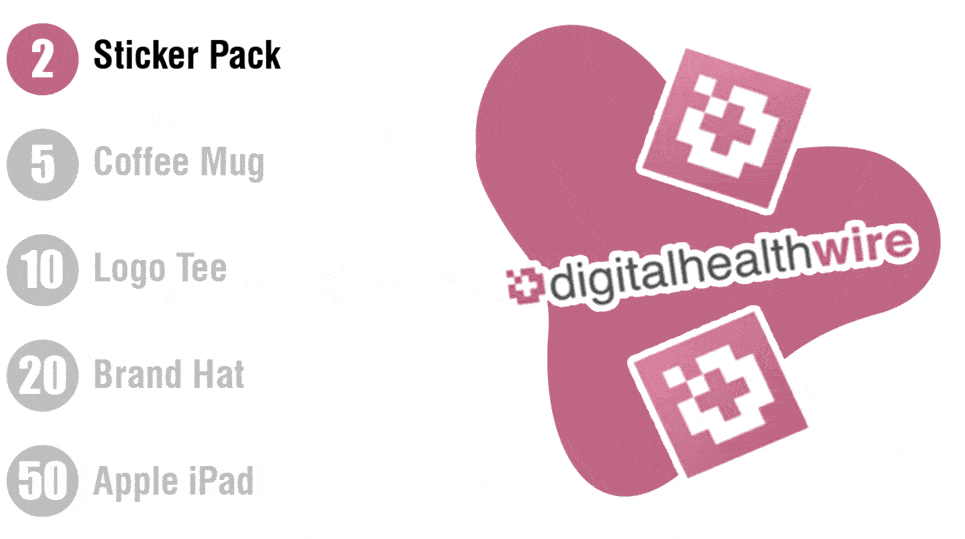|
Hospital Consolidation | Trouble in Babylon
August 10, 2023
|
|
|

|
|
Together with
|

|
|
|
“We believe that any new technology has to be 10 times better to successfully displace the last one – marginal improvements aren’t worth the effort. Enterprise software struggled to clear that 10x bar in healthcare; AI clears it easily.”
|
|
Andreessen Horowitz’s Daisy Wolf and Vijay Pande
|
|
|
It’s been two years since the first Digital Health Wire hit inboxes, and we’re just as excited to press send on DHW #200. Our readers are some of healthcare’s biggest changemakers, and it’s an honor to have so many of you start your day with us. THANK YOU to our sponsors for making this publication possible, and thank you to each and every one of our readers.❤️
|
|

|
|
Elevance just published a great report leveraging data from its affiliated health plans to color in the picture that’s been loosely outlined by a few other studies: patients face higher prices and lower care quality after independent hospitals are acquired by health systems.
It’s no secret why a growing number of independent hospitals are getting scooped up each year. Elevance found that operating expenses fell by an average of 6% after an acquisition, about 60% of which can be attributed to personnel reductions.
- The share of U.S. hospital beds that belong to health systems spiked from 58% in 2000 to 81% in 2020, and a quarter of markets no longer have any independent hospitals.
- Hospitals inked 20 M&A moves in Q2 alone, opting for consolidation in order to secure additional resources and negotiate more favorable contracts with payors.
That isn’t exactly great news for patients. Independent hospital acquisitions resulted in 5% higher costs for patients with commercial health coverage, and increases ranged from 5% to 8% across top diagnostic categories by volume (Ex. digestive, respiratory, and circulatory).
- Elevance also noted that its members receiving cardiac care saw readmissions increase over 10%, and that acquired hospitals with greater staff reductions unsurprisingly experienced a greater increase. Readmissions for Medicare patients with acute non-deferrable conditions saw a more conservative increase of 2-3%.
- The numbers were a little more vague surrounding access to care, although the study “observed the closure of maternity wards, which were concentrated in rural hospitals.”
What’s the solution? In Elevance’s view, regulators should seek assurances that patients won’t face higher costs following an acquisition, especially considering the efficiency gains for the health system. Regulators might also consider implementing quality standards during the approval process to ensure that readmissions and access aren’t harmed as a result.
The Takeaway
Elevance might have its own reasons for wanting to keep costs down at health systems, but it’s also putting out some credible evidence that suggests hospital acquisitions aren’t doing patients any favors. That said, there are plenty of very real pressures driving hospitals toward consolidation, and reports like this are important for helping policymakers chart the best path forward.
|




|
|
Medallion Unites Family Care Center’s Credentialing Process
As Family Care Center set out to expand its behavioral health services, it needed a scalable provider credentialing solution so that its staff could keep focusing on patient care. Find out how Medallion’s CAQH-integrated platform helped Family Care Center onboard its providers faster by letting them complete their applications in two days instead of two weeks.
|
|
Clear Arch Health Reduces Readmissions at Altru
When Altru Health System set out to reduce hospital readmissions, it turned to Clear Arch Health to find the solution. Learn how Clear Arch Health’s complete RPM platform and clinical monitoring system helped Altru lower readmissions while improving post-acute care quality.
|
|
Save Time & Minimize Risk with connectRN
connectRN takes the work out of hiring at scale. connectRN’s W2 staffing solution protects you and your business from liability. Plus, their credentialing team handles everything from state licensure to background checks, and you’ll have access to it all via their user-friendly platform. Learn more.
|
|
- Trouble in Babylon: MindMaze’s take-private acquisition of Babylon has been officially called off. The particularly jumbled press release got the point across that Babylon is beginning to transition its U.S. members to new providers as it exits the market, and that it’s still in the process of trying to offload its Meritage Medical Network independent physicians association. If Babylon hits any roadblocks with these “strategic alternatives,” filing for bankruptcy protection is apparently the next move.
- Digital Health Adoption Motivators: A Xealth survey of CHIME members found that 91% of executives have adopted digital health tools despite constraints like financial pressures (48%) and limited staff resources (19%). The top motivators for health systems expanding their digital health adoption were more payor/employer funded programs (81%), patient demand (71%), improved interoperability & ease of integration (67%), clear CPT codes (43%), and more clinical evidence (33%).
- Eli Lilly’s Blockbuster Q2: Eli Lilly’s been firing on all cylinders, with shares climbing over 15% after Mounjaro helped drive an 85% increase in Q2 profit. Lilly’s $8.3B of second quarter revenue included $668M from Jardiance (diabetes / heart failure), $927M from Verzenio (breast cancer), and $979M from Mounjaro, up from $16M in Q2 2022 despite still only having FDA approval for diabetes. Mounjaro was submitted for weight loss approval just last month, and Lilly still has a new $4B facility under works to ramp up mass production by 2027.
- Wegovy’s Cardiovascular Benefits: In other GLP-1 news, the hottest medication in the world just got even hotter after Novo Nordisk revealed that its weight loss drug Wegovy (semaglutide) also reduces major cardiac event risks by 20%. Novo Nordisk’s SELECT trial of 17,604 non-diabetic obese adults found that semaglutide not only reduces the risk of major CV events, but also achieved reduction in cardiovascular death, heart attacks, and stroke – data that seems to make it harder for payors to justify refusing to cover weight loss drugs.
- Hospital Data Breaches During M&A: University of Texas researchers found that hospitals are especially vulnerable to cybersecurity incidents during M&A activities, with the probability of a breach hitting 6% in the year before and after consolidation (vs. 3% outside of that window). The process of combining IT systems and getting employees up to speed on new workflows both contribute to the risk. The research arrives as Prospect Medical Holdings works to restore hospital systems and reopen EDs at facilities in four states following an ongoing breach.
- Neuralink Funding: Elon Musk’s brain-computer interface startup Neuralink took to X (aka Twitter) to announce that it’s raised $280M as it begins human clinical trials. Neuralink’s initial goal is to help quadriplegics control computers using only their thoughts, although Musk’s grander vision is to invent a way for humans and AI to have a symbiotic relationship. The FDA recently granted Neuralink approval for human clinical trials after the startup overcame several controversies surrounding poor animal treatment and transportation of pathogens.
- Talkiatry + NOCD: Telepsychiatry company Talkiatry is partnering with virtual obsessive compulsive disorder provider NOCD to collaborate on care for patients with OCD. Talkiatry focuses on talk therapy and medication management, while NOCD specializes in Exposure and Response Prevention therapy – a subset of CBT created specifically for OCD that helps patients confront anxiety-inducing thoughts and avoid compulsive responses.
- Medication Remains Rare for OUD: A JAMA analysis of federal survey data on 47k adults with opioid use disorder found that just 1 in 5 received medication for treatment in 2021. Among the notable stats in the study was the fact that OUD patients who received treatment through telehealth were 38x more likely to receive medications such as buprenorphine and methadone. The findings speak to telehealth’s role in addressing this gap, with only a third of the 2.5M U.S. adults with opioid use disorder receiving any kind of treatment.
- Geisinger & Bodyport’s HF Pilot: Geisinger launched a remote heart failure management pilot program that uses Bodyport’s Cardiac Scale to monitor HF patients’ fluid levels and catch signs of worsening heart failure. Geisinger will initially provide smart scales to 200 HF patients, who will use the scale for 20 seconds daily in their homes. Health system HF case managers can access this data using the Bodyport platform or via alerts with urgent cases, allowing them to proactively intervene and avoid hospitalizations.
- Doximity Growth Slows: Doximity investors weren’t too happy after its latest earnings call, taking an axe to the company’s market cap despite a 20% jump in revenue to $109M. Doximity remains one of the most profitable digital health companies on the market with an impressive EBITDA margin of 42.9%, but the story of the quarter involved slowing growth and a 100 employee headcount reduction. The revised-down forecast for the second half of the year included only 5% revenue growth, a sharp drop off from the 18% seen during H2 2022.
- NVIDIA Generative AI Toolkit: Digital health startups just got a new toolkit for building their own generative AI models following NVIDIA’s release of AI Workbench. The toolkit is designed to remove the complexity of getting started with an enterprise AI project, and generative AI algorithms developed with AI Workbench can reportedly be scaled to virtually any data center, public cloud, or NVIDIA’s own DGX Cloud.
|
|
Selecting Your Drug Database and CDS Solution
Do your providers need easy access to real-time drug knowledge and clinical decision support? Explore Synapse Medicine’s complete guide to drug database advantages, use cases, challenges, and factors to consider when selecting the right solution for your organization.
|
|
Better Diabetes Management With Glooko
Glooko’s diabetes management platform transforms the way patients connect with their providers, driving better engagement, adherence, and ultimately outcomes. Take a look at Glooko’s latest clinical studies to see how their platform is driving sustained improvements for people with diabetes.
|
|
Creating an Exceptional Engagement Experience
With a surge in experience‑oriented disruptors entering the healthcare industry, patient engagement is becoming a crucial competitive differentiator. Get your copy of Nuance’s guide to delivering intelligent interactions and a better experience at every touchpoint.
|
|
|
Share Digital Health Wire
|
|
Spread the news & help us grow ⚡
|
|
Refer colleagues with your unique link and earn rewards.
|

|
|
|
|
Or copy and share your custom referral link: *|SHAREURL|*
|
|
You currently have *|REFERRALS|* referrals.
|
|
|
|
|